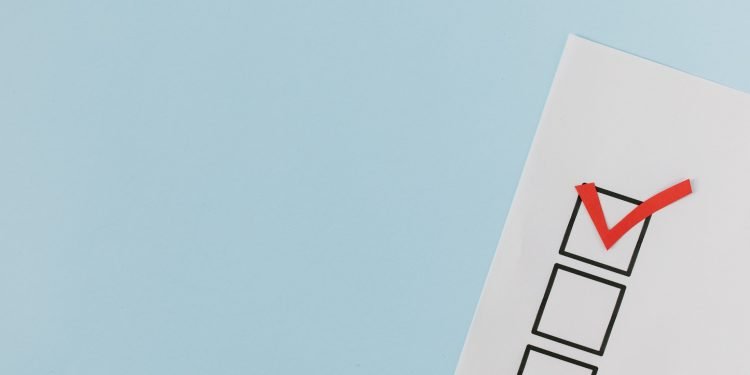ASU professors talk about partisanship from a psychological perspective throughout roundtable occasion
In the case of politics and partisanship, what’s going on within the minds of U.S. voters at this time?
That’s the query Arizona State College college mentioned throughout a digital roundtable occasion held this week.
“U.S. Elections From a Political Psychological Perspective” came about on Oct. 4, forward of November’s midterm elections.
Moderator Victor Peskin, an affiliate professor at ASU’s School of Politics and Global Studies, was joined by different professors from the college for a panel that touched on points similar to excessive partisanship, a multiparty system and the potential path to unity.
Political polarization was one of many overarching themes of the hourlong speak.
The panel mentioned that polarization is inherent in what is actually a two-party political system. In distinction, some international locations similar to Switzerland (4 essential political events) or Germany (5 or extra) provide voters extra selections.
Peskin requested if a multiparty system may change the present polarization and dynamic of political psychology seen lately.
Matthew Dempsey, lecturer at ASU’s College of Politics and International Research, doesn’t see that occuring.
“There’ll by no means be greater than two events within the U.S.,” mentioned Dempsey, who labored on political campaigns previous to coming to ASU. “It’s the principles of the sport. I agree {that a} two-party system units up extra polarization than a multiparty system would. However it’s a futile dialogue.”
Ideology or identification?
The panelists cited research that present that political leanings typically have extra to do with identification than beliefs.
“So how do we all know if folks select their occasion based mostly on their beliefs or their beliefs based mostly on their occasion?” Peskin requested.
For a lot of, social identification trumps values in terms of embracing a selected occasion, defined a number of of the panelists. People could first select a celebration after which, with out consideration or contemplation, settle for that occasion’s platform as their very own.
“It’s extra pushed by social identities than precise ideological agreements,” mentioned Fabian Neuner, assistant professor at ASU’s College of Politics and International Research.
Household ties can also affect political partisanship. Like DNA, most households appear to share the similar political leanings.
“Going again traditionally, what we find out about events is that individuals get their partisanship actually early in life — from their mother and father,” mentioned Basis Professor Kim Fridkin, citing a examine on the political affiliations of a number of generations inside a household. “It’s steady and turns into a part of their social identification.”
A 20/20 have a look at the 2020 election
In the case of the 2020 election, the query was requested: How will we perceive the assumption that the election was stolen?
“Some folks genuinely consider the election was stolen,” mentioned Neuner, who research political psychology, political conduct and public opinion within the U.S.
“Others understand it was not stolen,” he mentioned, however consider it might “replicate badly on their occasion to voice that. So they offer an opinion that they know is inaccurate.”
Neuner additionally defined how some folks will have interaction in expressive responding — the method of collaborating in a survey and knowingly offering insincere responses to advance partisan objectives.
“This poses an issue as a result of we will’t simply take folks at face worth. We’ve to query the motivations in these responses,” Neuner mentioned.
Politics within the neighborhood
The phenomenon of politically segregated geographical areas was additionally introduced up.
“The issue we’ve been seeing up to now 20 years or so … we’re discovering counties have gotten an increasing number of slanted in direction of one occasion or the opposite, thus your neighbors are going to be extra such as you, at the very least politically talking,” Dempsey mentioned. “We are literally siloing ourselves in our personal neighborhoods.”
That concept additionally extends to folks listening to media shops that espouse solely their beliefs.
Right now, folks have much more selections about the place they are going to get info, mentioned Fridkin, who teaches cognition and feelings in political pondering.
“Once I was rising up, there have been just a few TV stations … everybody was watching the identical factor, everybody was studying the identical info, everybody had the identical set of information,” she mentioned.
Fridkin developed a principle referred to as the “citizen-centered principle of campaigns” that’s based mostly on the concept that the abundance of political info obtainable to voters at this time could make them extra energetic and, on the similar time, solely give attention to info they need to search out and retain.
Peskin requested the panelists if any disaster or home or worldwide risk to the U.S. may convey a optimistic shock to our political system and rekindle a way of collective nationwide identification, the place polarization would lower and rhetoric is likely to be softer and extra light.
Neuner responded by saying that even one other exterior risk, like 9/11, wouldn’t diminish the nation’s division and create a way of unity. As an alternative, it might change into a possibility to shift blame to the opposite occasion.
“There’ll at all times be somebody, someplace inside a political occasion, who will attempt to use that for political achieve.”
High picture by Tara Winstead via Pexels










